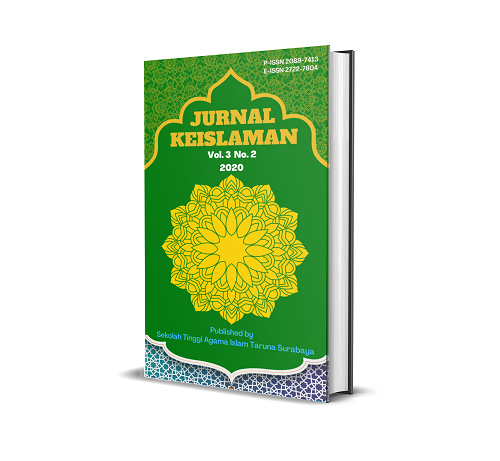Naluri Pendidikan Karakter Meneladani Kisah Al-Hakim
Abstract
In life, the main goal of a human being is to become a complete human being, who can be self-sufficient and socialize well. Have self-awareness to live a better and peaceful life. It is through education that humans are trained and accustomed to achieve complete goals. Character education is not a process of memorizing exam question material or techniques for answering exam questions. But character education is an habituation. The habit of doing good, habituation of respecting others, habituation of being honest, habituation not to be lazy, habituation of respecting time, and so on. All of that must be trained seriously and proportionately in order to achieve the ideal form and strength. Character education is a very important stepstrategic in rebuilding the national identity and mobilizing the formation of a new Indonesian society. The approach in this research is literature study. As we all know Luqman Al Hakim is a wise person who is a role model for many human beings including writers. This time, a literature study on how the character education instincts of al-judge will be discussed by the author. How is the series of moral decisions (Moral Choice) which are followed up with real action by Al Hakim, in full will be explained by the author in the following discussionCopyright (c) 2020 Santi Fauziah

This work is licensed under a Creative Commons Attribution-ShareAlike 4.0 International License.
Authors who publish with this journal agree to the following terms:
- Authors retain copyright and grant the journal right of first publication with the work simultaneously licensed under a Creative Commons Attribution-ShareAlike that allows others to share the work with an acknowledgement of the work's authorship and initial publication in this journal.
- Authors are able to enter into separate, additional contractual arrangements for the non-exclusive distribution of the journal's published version of the work (e.g., post it to an institutional repository or publish it in a book), with an acknowledgement of its initial publication in this journal.
- Authors are permitted and encouraged to post their work online (e.g., in institutional repositories or on their website) prior to and during the submission process, as it can lead to productive exchanges, as well as earlier and greater citation of published work (See The Effect of Open Access).






















